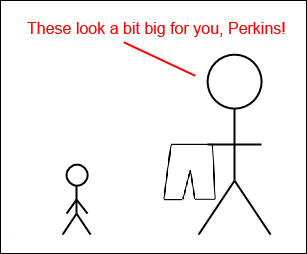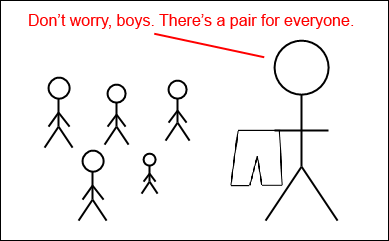Adjective
Derived from the word 'adjunct' (associated, connected, added). Adjective is partly French (adjectyf, adjectif;), partly Latin (adiectivus, adiectivum).
Adjectives say something about a noun. Life would be very dull without adjectives. Suppose you were the victim of a crime and a police officer asked if you could describe the man who attacked you. Without adjectives, the police won't have much to go on. With adjectives the man could be:
Tall, Stocky, White, Blue-eyed, Bald, Muscular, etc
There's a whole dictionary's worth of adjectives you could use to describe him.
And what was he wearing?
A blue shirt, black pants, a Mickey Mouse watch, a deerstalker hat
Adjectives, then, bring a noun to life. In English, they come before the noun. In other languages, French for example, they come after the noun:
English: The man wore a blue shirt
French: The man wore a shirt blue
You can have more than one adjective before a noun. But they have to come in a certain order if you don't want to sound like a crazy person. Mark Forsyth in The Elements of Eloquence says the adjective order is this:
Opinion, size, age, shape, colour, origin, material, purpose
Seonaid (Shona) on this this site agrees:
Perfect English Grammar
The British Council, however, insist that the adjective order is this:
Opinion, Size, Shape, Age, Colour, Nationality, Material
We have Age, Shape, Colour in the first one and Shape, Age, Colour in the second one. Does it matter? Well, either this is correct:
The new, round, yellow ball
Or this:
The round, new, yellow Ball
The second one sounds insane!
So this:
The amazing, new, round, yellow, French, rubber, tennis ball
And not:
The amazing, round, new, yellow, French, rubber, tennis ball
If you want a mnemonic to help you remember the adjective order, try this:
Our sizeable, ancient spheroids, crimson originally, mature perfectly.
Examine these two phrases:
The boy's trousers
The boys' trousers
Which one to use?
Depends how many boys you're talking about. There's only one boy in the
first example:

In the second example, there's more than one boy:

And that's the key when you're trying to decide if it's apostrophe s or
s apostrophe: how many possessive adjectives are you talking about?
Possessive adjective? What's that?
The noun is trouser. The adjective is boy. It's a possessive adjective
because the boy (adjective) is possessing the trousers (noun).
Here's a two-step process to decide which one to use.
1) Is it a possessive adjective?
If you had a gang called The Trouser Boys, Trouser in this case is not a
possessive adjective. So you don't need an apostrophe.
2) If yes, then how many of the adjective
are you talking about?
If you mean only one boy has trouble with his trousers then it's apostrophe 's' (boy's).
If there's more than one boy having trouble with his pants then it's
's' apostrophe (boys').


